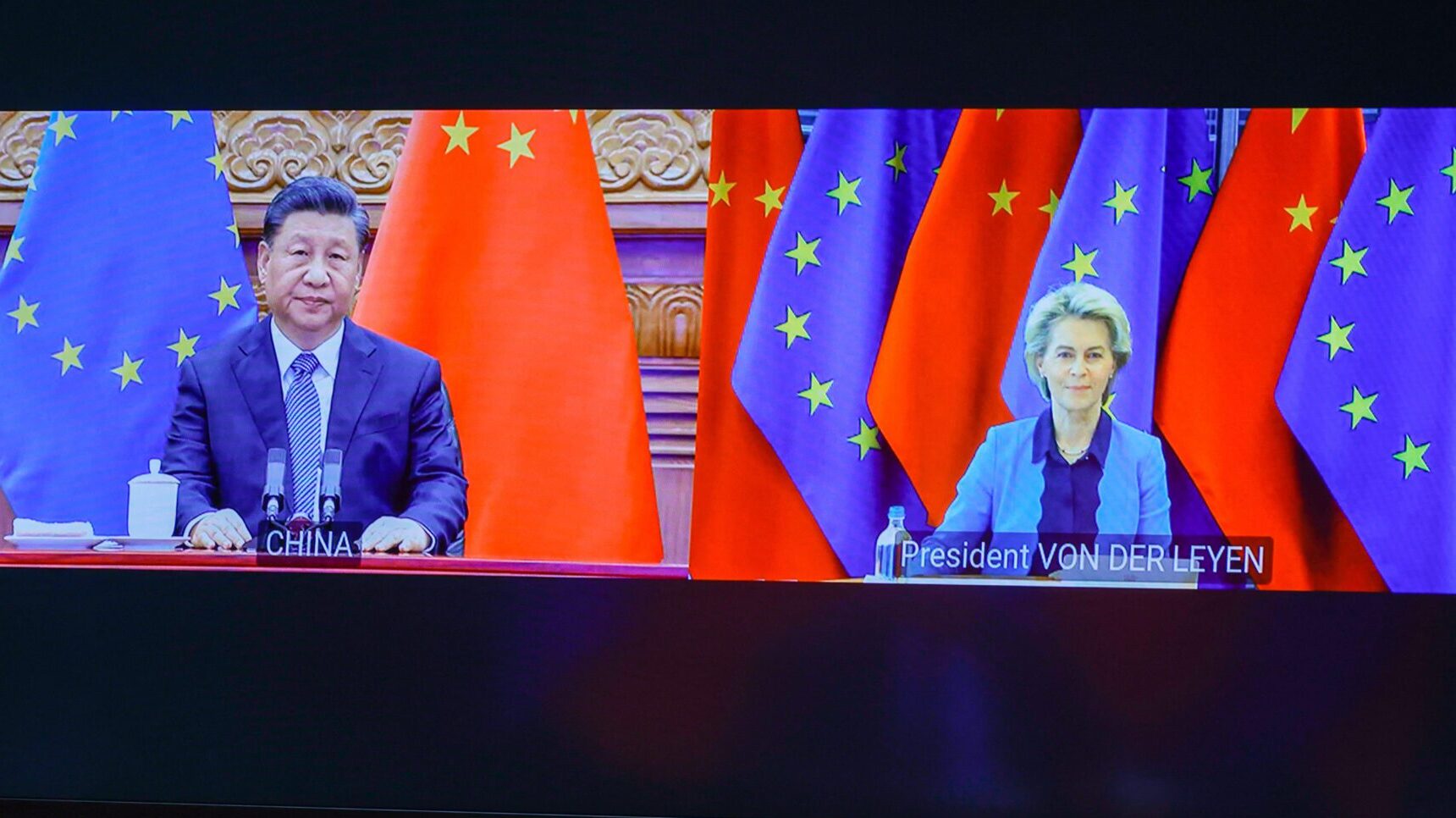
China’s President Xi Jinping (L) and European Commission President Ursula von der Leyen speak via video-conference with European Council President and European Union foreign policy chief during an EU China summit at the European Council building in Brussels, on April 1, 2022.
Photo: Olivier Matthys / POOL / AFP
The EU, like Britain and the U.S., is believed to have been targeted by Chinese cyberattacks. And like their London counterparts in particular, Brussels leaders now stand accused of failing to issue a proper response.
In fact, the disclosure didn’t even come from Brussels administrators. Instead, the American Department of Justice (DoJ) issued an indictment on Monday revealing that Chinese hackers have over recent years targeted “every European Union member” of the Beijing-critical Inter-Parliamentary Alliance on China (IPAC).
Belgian politician Samuel Cogolati, who is co-chair of IPAC and was himself targeted by Chinese cyber attackers in 2021, the same year he was sanctioned by Beijing, told Politico:
It is absolutely ridiculous to find out about all the other victims of Chinese cyberattacks in Belgium and across Europe through an indictment—issued by the U.S. DoJ.
He added in a post online that “hackers must be prosecuted.” But will prosecutors answer the call?

British Conservative minister Gillian Keegan warned on Tuesday that London could only go so far in its punishment of China—basically by imposing less than a handful of sanctions—because pushing the boundaries could harm trade. The same thought surely ran through the mind of Mark Rutte, the Dutch caretaker prime minister who is lined up to be the next head of NATO, when he met Xi Jinping in Beijing on Wednesday and spoke of his hopes of expanding his country’s business dealings with China.
EU officials released a wholly uninspiring statement on Monday responding to the revelations. More impressive was the response of IPAC, which said that “over 1,000 emails to more than 400 unique accounts of individuals associated with [the group] were attacked in 2021,” on Wednesday:
This was not an attack on any individual. It was not an attack on a political party, the policy of any one government, or even continent. It was directed at politicians who represent the ideological and geographical breadth of the globe, united by one thing only: their willingness to confront the profound challenges posed by the Chinese Communist Party. We will not be deterred from exercising our democratic freedoms.
We stand together, resolute in our determination to defend the integrity of our political systems, and the international rules upon which we all depend. By targeting us, these hackers have helped to consolidate our unity, underlining that what is at stake is bigger than party or national interests.
European voters hoping for similar proclamations from their Brussels leaders ought not to hold their breaths.
